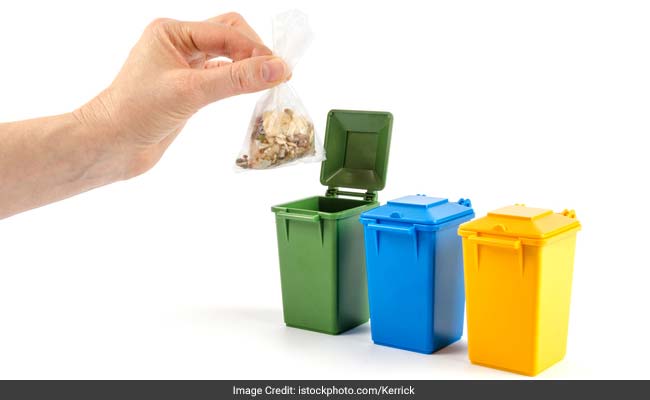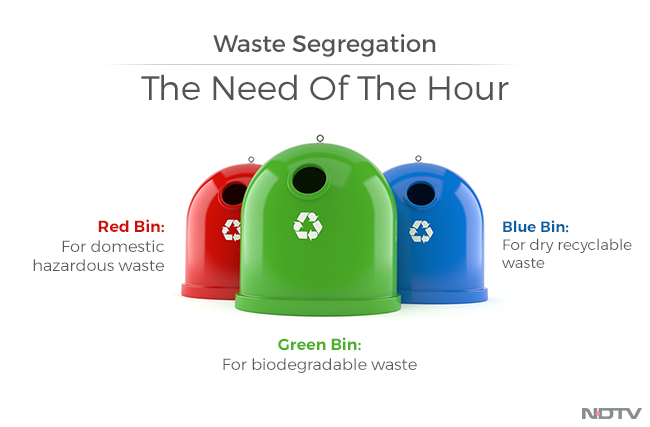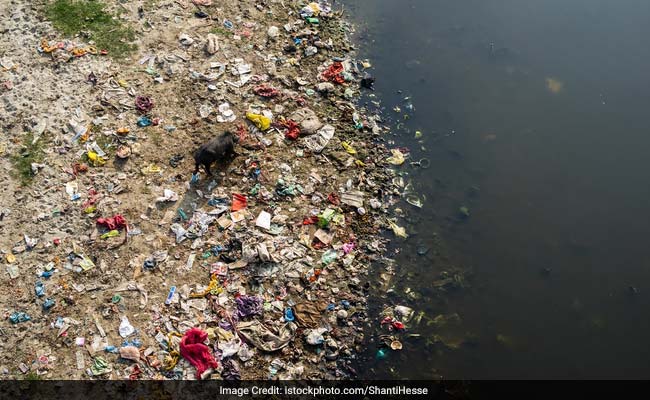Highlights
- India generates about 62 million tonnes of garbage every year
- More than 45 million tonnes of waste in India remain untreated
- Currently what is missing in India is the practice of Waste Segregation
When you are throwing waste in the bin that doesn’t mean that it is the end, the process of managing waste, in fact, begins from there. Segregation of waste should the first step of waste management. Yet in India this process is non-existent. Today, India alone generates more than 1,00,000 metric tonnes of solid waste every day, that’s higher than many countries’ total daily waste generation taken together. And, the number is continuously rising because nothing is being done about ‘Waste Management’ in India.
Also Read: An Urgent Challenge: Why India Needs To Tackle Its Menstrual Waste
When it comes to managing the waste, India is among the poorest of all countries. Currently, every year approximately 31 million (70-75%) of waste is dumped straight into the landfill sites – in an unhygienic manner. The end result is that we have already run out of landfill space. All major landfills in India like Deonar in Mumbai, Ghazipur in Delhi and Kodungaiyur in Chennai, to name a few, are way-past their capacity and are over-flowing dreadfully. So, what exactly are we doing? Every problem has a solution but it seems that India’s waste miseries don’t have any shorter way out yet.
Also Read: Top 10 Things To Know About India’s Waste Management Woes
The Problem: Waste Segregation – A Concept Which Is Unknown To Many
One of the biggest issues when it comes to tackling waste management in India is unawareness and education among the waste generators. Waste is the result of human activities; if we as waste generators don’t have a proper understanding of waste issues then the success of even the best-conceived waste management plan becomes questionable.
The grim reality in India is that there is no connection between the waste generators and the policy makers of waste management. People are ignorant, they don’t know from where to start and what to do. Even though India is sitting on a ticking garbage bomb, we as waste generators continue to generate as much as we were generating a few years ago, says Arun Krishnamurthy, Founder of Environmentalist Foundation Of India.
The Growing Need Of One Nation, One Policy
Even though there are separate bins available at some of the public places in India in order to attempt waste segregation at source, people throw waste randomly in any bin without any attention to the coloured bins. This can be due to two reasons – the careless attitude of waste generators towards waste management and lack of uniformity in colour codes of these bins. As per Bureau of Indian Standards, green bin is for biodegradable waste, blue or white bin is for dry recyclable waste and the red bin is for domestic hazardous waste.
Highlighting the problem with India’s waste management system, Swati Singh Sambyal, Programme Manager, Environmental Governance (Municipal Solid Waste) from Centre for Science and Environment adds, Even though government is doing their best to integrate waste segregation at source, the question is how many of us know about coloured bins? People don’t know about these things, because, firstly they are unaware, secondly even if they are aware, there are policy differences within states. Mysuru has a two bin model, Panaji has a five bin model, some have a two bin one bag model, but it is not uniform. As a result, there is a lot of confusion.
Coloured bins are one thing, there are various other rules and regulations for Waste Management in India which is passed by the government, but the issue which persists is its implementation. Reiterating this Arun Krishnamurthy adds, “When it comes to waste management, there are rules and regulation available but when it comes to implementation nothing is being done. The moment it comes down to municipal level for implementation, the guideline gets haywire and loses its track.”
In Need Of Hefty Penalties
There are ‘Spot Fines’ for littering or polluting the environment, but, still, the polluters continue to dump hazardous waste anywhere and everywhere. The reason is simple – There are no hefty fines for acts like these. Another reason is that the fines are way too less and is not uniform across the country.
People continue to dump waste on our planet because they know nothing will happen to them, there is no one to punish them. They can continue doing what they are doing. The need of the hour is stringent action against these polluters, added Arun Krishnamurthy.
What Our Government Is Doing
Though there is no one holistic plan for waste management with the government as of now, there are few steps being taken by the government in order to deal with India’s growing waste woes. However, its implementation still remains a huge problem.
The Union Ministry of Environment, Forests and Climate Change came up with the new Solid Waste Management Rules 2016 (SWM) which has a guideline for all waste generators to segregate waste at source. The Ministry of Urban Development recently issued guidelines to all states civic bodies in order to encourage source segregation of waste by introducing a two-bin system – wet waste in Green and dry waste in Blue. This guideline if implemented effectively, will tackle the problem of uniformity in colours of bin across the country.
Also Read: Swachh India: Guide To Solid Waste Management Rules 2016
Why Waste Segregation Is Important
Lack of segregation is simply the reason why India is drowning in its own garbage. If we start segregating the waste into biodegradable (waste that can be quickly broken down by microorganisms in normal environmental conditions) and non-biodegradable (waste that takes time to break down naturally. This type of waste is mostly recyclable) then we can save our landfills to a great extent which is currently on the verge of dying. In India, the problem is that most of the waste ends up directly in the landfills without any treatment. End results – The overflowing landfills which is also the root cause of blocked drains, soil and water pollution.
Thumb rule for waste segregation should be to send a minimum amount of the waste to the landfills. The aim should be to reuse maximum of the waste. Talking about the benefits, segregating garbage helps pick out recyclable and reusable material from other waste matter which in turn helps in reducing the garbage overload from our planet. This process needs to be adopted by both waste generators and policy makers, no one alone can adopt this practice.
Also Read: From Garbage To Garden: Learn The Art Of Composting At Home
Expert Speak: The Way Ahead
Looking at the current scenario, if India continues to generate waste at the same speed as it is generating now then by 2030 we will need a landfill as big as Bengaluru to dump all the waste.
Arun Krishnamurthy says, When it comes to waste management, there are several rules and guidelines being passed by the government every now and then. What our country needs is one consolidated waste management policy then only we can manage our waste woes effectively. It is very much possible if other countries can do it, so can we.
Also Read: 5 Cool Waste Management Ideas From The World That India Can Adopt
Following the footsteps of organisations or states that have managed to solve their waste issues should be the first priority for India. Swati Singh Sambyal adds, “If we talk about Delhi, how many successful waste management campaigns have happened in the past, wherein local residents or RWAs have been educated on the importance of segregation. Say, for example, Defence Colony, Vasant Vihar, to name a few. But then, these models are not being replicated. There is still a hindrance towards segregation because it requires extra work. People need to take waste management seriously; it is equivalent to getting up and brushing your teeth. The problem of waste management in our country is because we have not learned to segregate. That lesson has to be taught and taught well.”


































